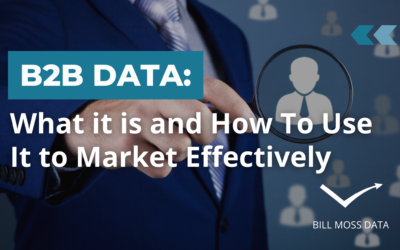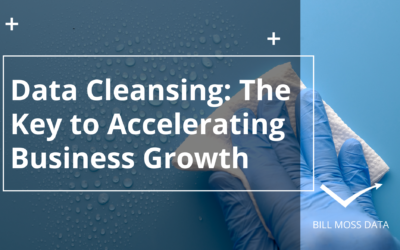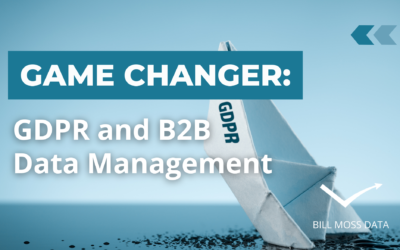In the modern competitive business landscape, organisations are increasingly relying on data to gain a competitive edge and drive revenue growth. Through harnessing the power of data analytics, businesses can extract meaningful insights, identify patterns and trends, and make data-driven decisions to optimise sales strategies.
From customer segmentation and personalised targeting to sales forecasting and performance analysis, data analytics offers some incredible opportunities to enhance B2B sales effectiveness.
Join us in today’s blog as we explore the transformative impact of data analytics on B2B sales and discover practical strategies to leverage data for better customer engagement, improved conversion rates, and increased revenue.
Join Our Newsletter
Subscribe to our newsletter and receive the latest news and exclusive offers from Bill Moss Data.
1. B2B Analytics Allow for Integration of Sales and Marketing Teams
Analytics plays a crucial role in integrating B2B sales and marketing efforts. Analysis provides an avenue for shared customer insights, facilitates effective lead scoring and nurturing, enables closed-loop reporting, and helps drive continuous improvement on both sides.
By analysing data from both sales and marketing sources, organisations can gain a comprehensive understanding of their customers, including their behaviour, preferences, and engagement patterns. This shared knowledge allows sales and marketing teams to align their strategies, messaging, and targeting to deliver a consistent and personalised customer experience.
Comprehensive B2B data analysis also enables closed-loop reporting, which connects marketing efforts to sales outcomes. By integrating sales data with marketing campaign data, organisations can measure the impact of marketing initiatives on revenue generation and customer acquisition. This closed-loop reporting helps identify successful marketing campaigns, optimise marketing spend, and foster collaboration between sales and marketing teams to drive better results collectively.
Using B2B analytics also facilitates continuous improvement by providing real-time insights into sales and marketing performance metrics. By monitoring KPIs such as conversion rates, customer acquisition costs, and customer lifetime value, organisations can identify areas for improvement and make data-driven decisions.

2. B2B Analytics Helps Improve Lead Quality
In modern B2B marketing, data analytics makes it entirely possible to match contact points with leads showing higher purchase likelihoods. This leads to a much higher lead quality when calculating sales outcomes, allowing B2B companies to focus on those customers who are statistically more likely to convert.
Using data analytics techniques, organisations can also identify and rectify data inconsistencies, errors, and inaccuracies that can compromise data integrity. Data profiling, data cleansing, and data validation processes, analytics can help identify duplicate records, missing values, outliers, and inconsistencies in data formatting or structure.
By analysing patterns and trends in the data, organisations can also detect anomalies and identify potential data quality issues. Furthermore, data analytics allows for continuous monitoring and assessment of data quality, ensuring that data remains accurate, complete, and up-to-date over time. By addressing data quality issues through data analytics, organisations can enhance the reliability, usability, and value of their data assets, enabling better decision-making, improved operational efficiency, and increased customer satisfaction.
3. Analysis Increases B2B Marketing ROI
Marketing is essential for any business to grow, especially B2B sellers. Using data analytics can help capitalise on the potential of marketing campaigns and allow companies to boost sales even further.
By leveraging B2B data analytics, companies can gain deep insights into customer behaviour, preferences, and trends. These insights enable marketers to make data-driven decisions, optimise campaign strategies, and deliver targeted messages that resonate with their audience.
Data analytics allows marketers to analyse campaign performance metrics such as click-through rates, conversion rates, and customer engagement levels. By closely monitoring these metrics, marketers can identify which aspects of their campaigns are most effective and make data-informed adjustments to maximise results. For example, they can identify the most successful channels, messages, or offers and allocate resources accordingly to amplify their impact.
Furthermore, data analytics helps marketers measure the return on investment (ROI) of their marketing campaigns. By tracking the impact of marketing efforts on sales revenue, companies can understand the correlation between marketing activities and financial outcomes. This insight allows them to optimise their marketing budget allocation and focus on activities that generate the highest ROI.
Analysis may also enable marketers to conduct A/B testing and experiment with different variables, such as messaging, visuals, or targeting criteria. By analysing the results of these tests, marketers can make data-driven decisions about which variations are most effective in driving sales and adjust their campaigns accordingly.
Overall, leveraging data analytics in marketing campaigns empowers companies to make informed decisions, optimise strategies, and deliver targeted messages that resonate with customers. By understanding the impact of marketing activities on sales outcomes and continuously improving based on data insights, companies can effectively boost their sales and achieve greater success.

4. Use Analysis to Identify and Examine the Most Profitable Sales Channels
Data analytics is invaluable for B2B organisations as it provides in-depth insights to sales channels that are the most effective and have the most potential.
By analysing their data, companies can identify which sales channels are most effective in reaching their target audience and generating the highest potential for sales.
For example, using data analytics, organisations can track and measure the performance of different sales channels such as direct sales, online platforms, partnerships, or trade shows. They can analyse customer interactions, conversion rates, and revenue generated from each channel to determine their effectiveness.
Data analytics also helps to identify the channels that are driving the most leads, conversions, and revenue. This insight allows B2B organisations to optimise their sales efforts by allocating resources and investments towards the channels that show the most potential. By focusing on the channels that yield the highest return on investment, companies can enhance their sales strategies, streamline their operations, and ultimately increase their revenue.
Moreover, data analytics provides a comprehensive view of the entire sales process, from lead generation to deal closure. It enables organisations to track and analyse key metrics such as customer acquisition costs, average deal size, and sales cycle length. These insights help in identifying bottlenecks, refining sales strategies, and maximising efficiency throughout the sales funnel.
5. Analyse Market and Competitor Performances
Knowing your competitors’ performances and having in depth knowledge of the current market can give you a distinct edge.
By utilising data analytics, you can gain valuable insights into your competitors’ sales figures, market share, customer engagement, and marketing strategies. This information allows you to benchmark your own performance, identify areas for improvement, and develop strategies to outperform your rivals.
Furthermore, data analytics helps you understand market trends, customer preferences, and emerging opportunities. By analysing market data, consumer behaviour, and industry insights, you can make informed decisions, optimise your marketing campaigns, and tailor your offerings to meet the evolving needs of your target audience. With analytics as your ally, you can gain a competitive advantage, anticipate market shifts, and position your business for long-term success.
In Conclusion…
B2B data analytics has the potential to be a game-changer for companies seeking to drive B2B sales growth. By harnessing the power of data, businesses can gain valuable insights into customer behaviour, optimise marketing strategies, and make data-driven decisions that lead to increased sales.
For those seeking expert assistance in data analytics, Bill Moss is here to help. Visit www.bill-moss.com to explore our range of data analytics services and unlock the full potential of your B2B sales efforts.
Related Articles
B2B Data: What it is and how to use it effectively
For B2B sales representatives, the quality and depth of data about a prospect can directly impact the effectiveness of their pitch. In 2023 data has become a driving force behind critical decision-making. Data provides invaluable insights to marketing and sales...
Data Cleansing: The Key to Accelerating Business Growth
Discover how data cleansing can transform your business processes and drive growth. In today's digital age, data is king. From customer information to sales data, businesses are constantly collecting vast amounts of data. However, as valuable as data is, it can also...
GDPR and B2B Data Management: A Game-Changer for Business Success
Discover how data cleansing can transform your business processes and drive growth. Data management is more important than ever in 2023. But with the advent of GDPR, managing data has become even more complex. For B2B companies operating in Ireland, GDPR has...




